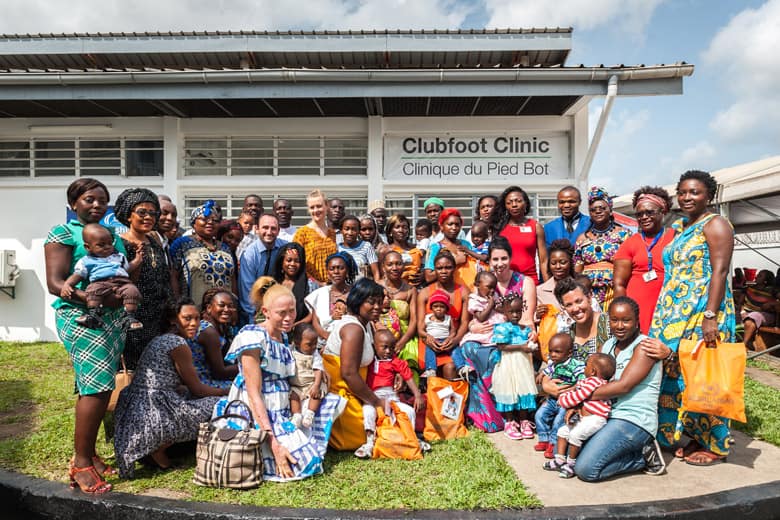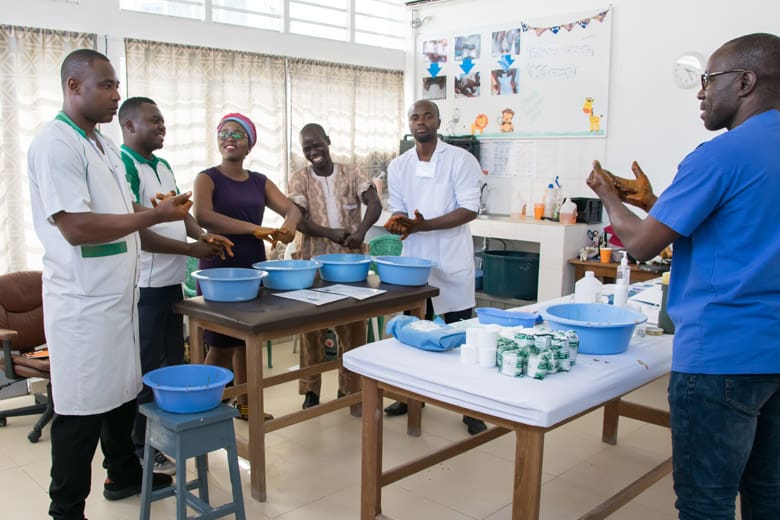
Give children the opportunity to walk and play
Orthopaedic surgery and Ponseti method
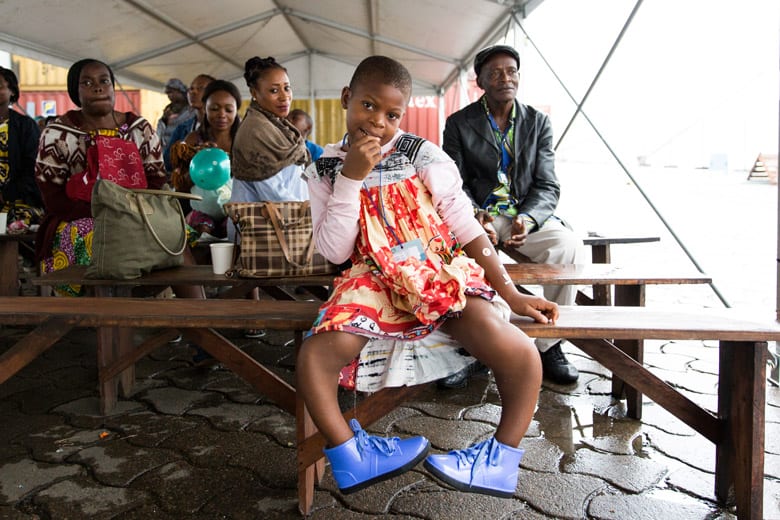
Orthopaedic problems in developing nations
Why is the need so extreme?
In developing countries, such as those in West Africa, fractures and clubfoot often remain untreated. In these countries, medical errors or malnutrition can slow down bone development. Additionally, three quarters of these countries offer no training in either orthopaedics or the fitting of prosthetics. Without appropriate care, children who are born with clubfoot or deformed legs grow up suffering from pain, facing futures drastically limited by their mobility.
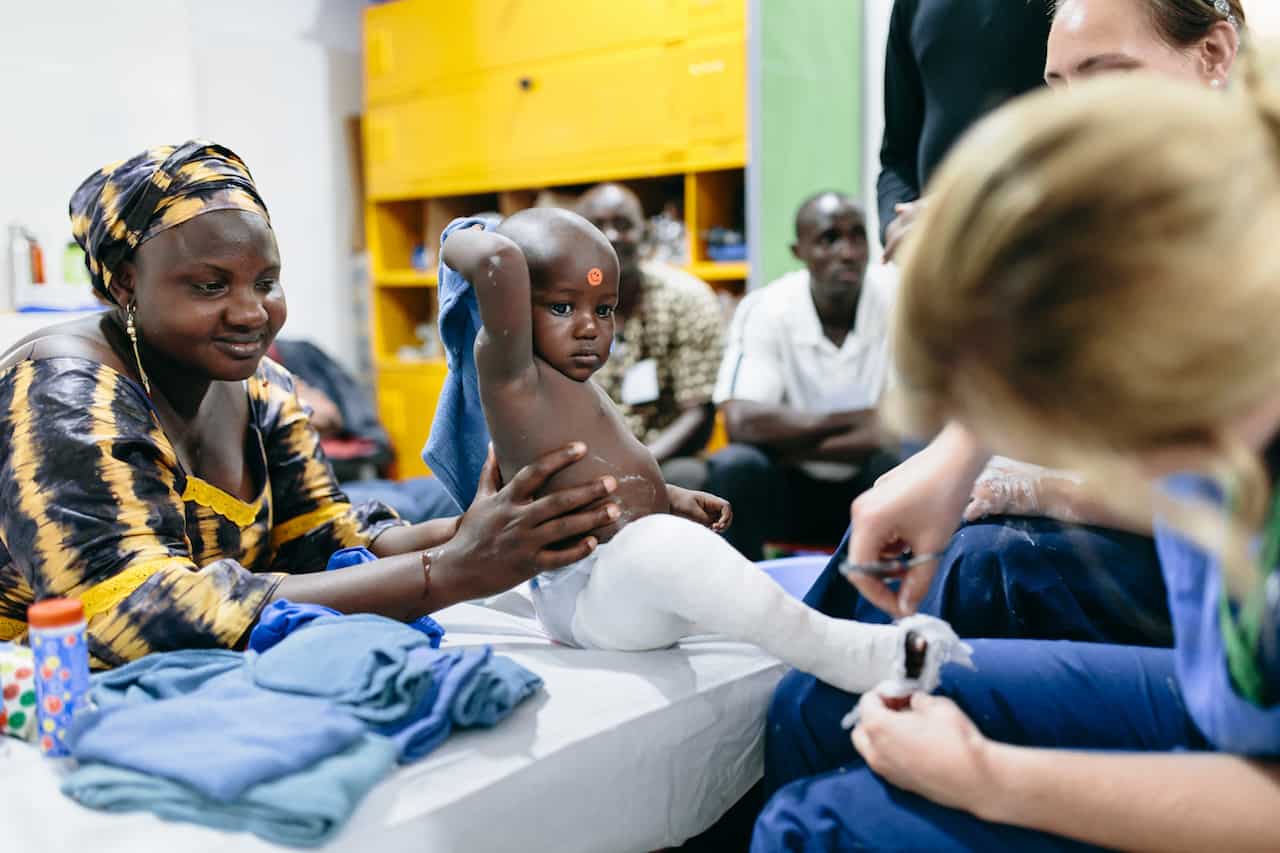
Clubfoot
Globally, one child in every 1400 is born with a foot deformity, like clubfoot. Without adequate treatment, these children learn to walk on the sides of their feet rather than the sole. They suffer pain, a clumsy gait and mockery on a daily basis.
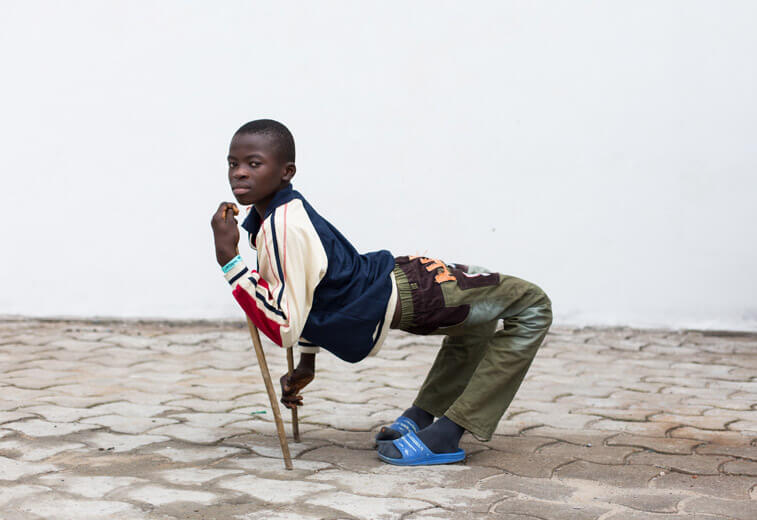
Windswept legs
A congenital deformity, a minor accident or an inadequate diet can cause a curvature of the legs of a child. Untreated, the genu valgum (knees in X position) and the genu varum (knees in O position) prevent a child from walking correctly.
Children can walk thanks to the surgical programs on board
Surgery
Mercy Ships works in partnership with the local medical community in each country to identify candidates for surgery. In the fully equipped operating theaters on board, highly qualified surgeons provide free orthopaedic operations on hundreds of children, transforming lives.
The orthopaedic project focuses on paediatrics, because the bone malleability in children makes recovery much quicker than in adult patients. In this way we can, to some extent, follow up a patient until they are fully recovered. This approach is most appropriate for Mercy Ships, due to the time constraints of the ten-month ship deployment.
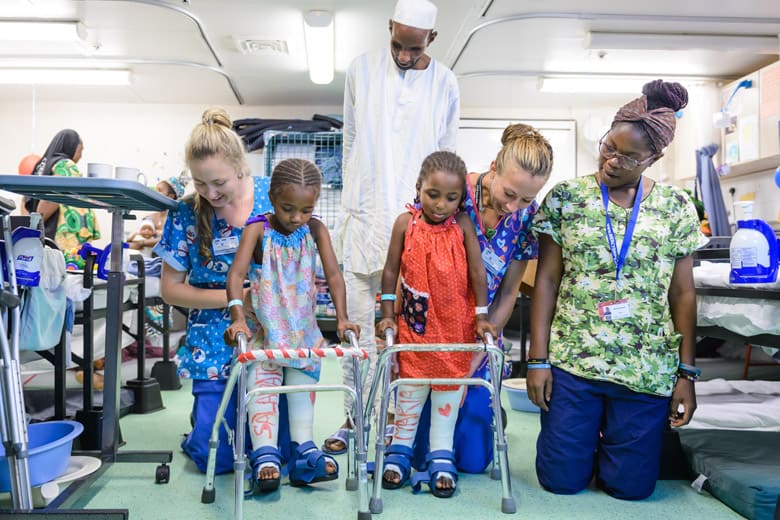
Ponseti Method
The Ponseti Method is a treatment for clubfoot which does not require an invasive operation. As a result, it is perfectly adapted to developing countries which lack surgical infrastructure.
Mercy Ships train local health professionals (doctors, physiotherapists or even social workers) to correct clubfoot in stages, by means of successive casts. We are able to treat 20 to 30 children at the same time, over a three month period.
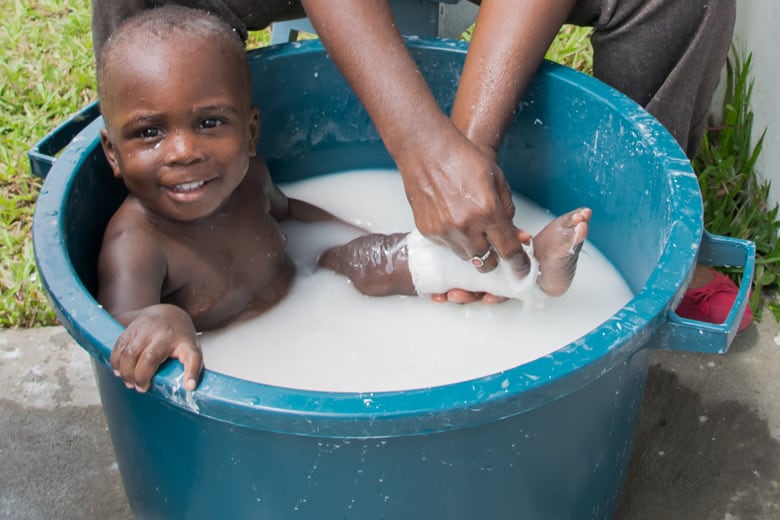
Training, Capacity Building & Prevention
Mercy Ships collaborates with governments and local health ministries in order to improve the national healthcare infrastructure. We work with local surgeons and nurses, offering them training and opportunities to learn specific techniques. In addition, Mercy Ships contributes to the long-term eradication of preventable diseases which can lead to serious consequences by conducting community health education programs.
Accomplishment
Performed more than 108,000 life-changing, and often life-saving, operations such as cleft lip and palate repair and maxillofacial surgery.
Orthopaedic program
Other Health Topics
Statistics
- Every year, around 100,000 babies worldwide are born with a Club foot.
- 80% of the world’s fractures and the majority of Club feet occur in developing nations.

“I began volunteering for the Mercy Ships Club on the University of Victoria’s campus. I really enjoyed helping out and fundraising and wanted to actually help on board the ship. I want to be able to make a difference in the lives of people who are unable to access appropriate health care."

